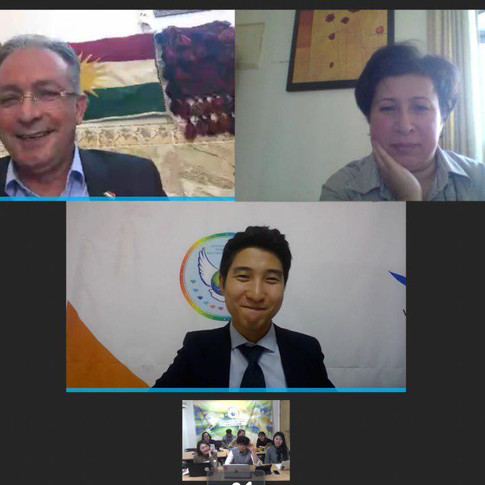Establishing Global Network for Peace to Put into Action Based on the DPCW
- Anews.am

- Nov 22, 2017
- 2 min read
On October 20, for the sake of world peace, the two faculty members of politics from Iraq and Palestine took part in the World Alliance of Peace Office (WAPO) hosted by an international NGO under the UN Department of Public Information (DPI) called Heavenly Culture, World Peace, Restoration of Light (HWPL).
WAPO is the pre-online open discussion to build a global network of university professors and to promote the Declaration of Peace and Cessation of War (DPCW) for implementing in each country. WAPO aims to develop the DPCW into a legally binding document as a legal framework to secure peace at both national and international levels by raising the awareness of peace to the citizens.
The DPCW comprises 10 articles and 38 clauses based on the existing International Law and suggest the practical standards to resolve the conflicts such as the prohibition of the armed conflicts, the protection of the religion and the ethnic identity, and spreading of a culture of peace through international cooperation.
This WAPO, the 4th meeting followed by Australia, Saudi Arabia and Jordan, began with an opening introduction of panels. Afterwards, the attendants discussed the articles of the DPCW chosen by themselves.
Dr. Amneh Badran, a professor of Political Science department of Al Quds University, said, “Peace needs knowledge, will and power to achieve. One of the possible ways to implement the DPCW is creating forums for talking over action plans of the DPCW to apply to each country.”
And he stressed, "More scholars, experts, professors have to attend this meeting in order to introduce the DPCW to civil society so that entire member of society can be aware of the DPCW. Also, it was impressive meeting in different nations. I think it is more needed in the future in the Middle East."
At the discussion, Dr. Sarbast Nabi, a lecturer of Koya University, said, “As all know, the Iraqi Kurdistan after referendum has faced many challenges and difficulties leading to making conflicts, threatening peace and settlement in disputed territories. Thus, I think Articles 1, 2 and 5 of the DPCW are most needed to be implemented in Iraq.”
In this coming November, the university students will have a meeting based on the WAPO to learn the DPCW and discuss on necessary articles for each country in the name of Peace Guardians project. It will be held to build practical ways to bring the awareness of the DPCW in their country for making their own futures safe.











Comentarios